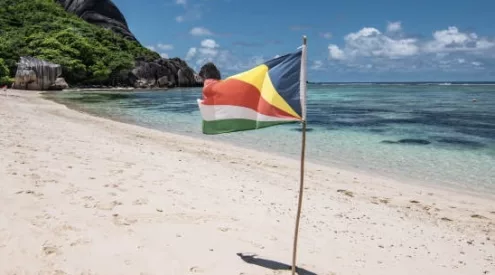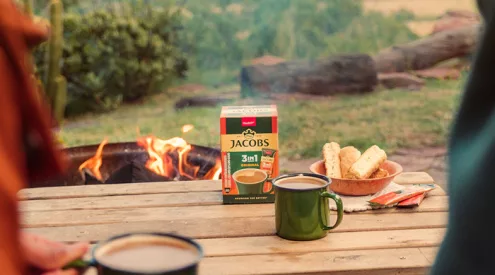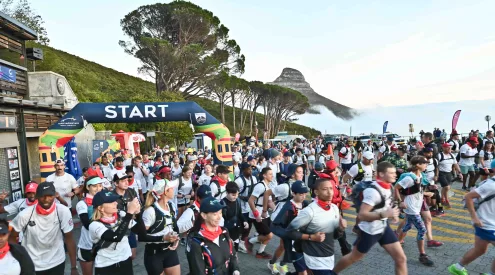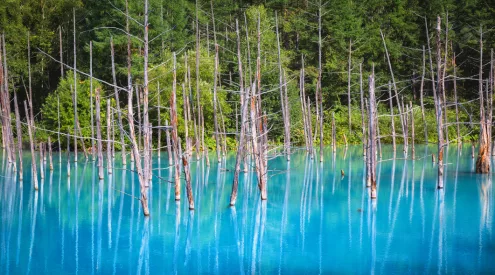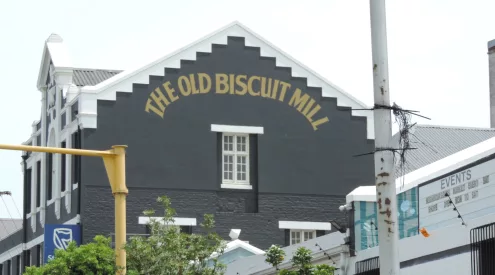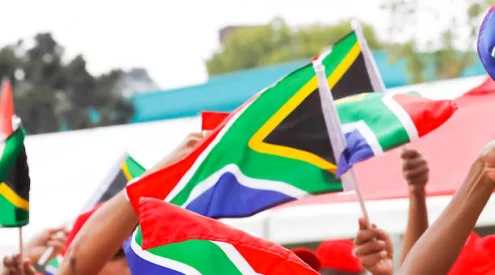Isolated from the rest of the country for centuries, the Kavango region in northern Namibia was only discovered by explorers very late during the nineteenth century and remains largely undiscovered by travellers even today. Intrigued? Keep reading.
Named after the people who reside there, Namibia’s Kavango region is home to incredible wildlife, natural beauty and an abundance of fresh water from the Okavango River. Based on the riverine landscapes, people and birds, the Kavango Open Africa Route affords travellers the opportunity to venture off the beaten track, explore one of Namibia’s pristine destinations, and discover what this little piece of paradise has to offer.
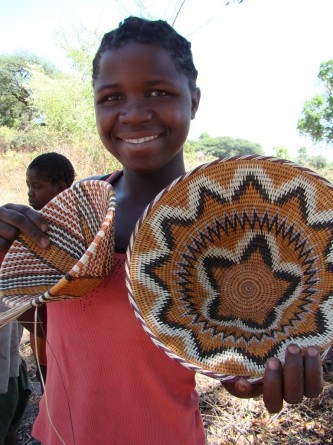
A crafter at Khaudum National Park. Photo: Charl Pauw
The Kavango Open Africa Route was developed to help attract travellers to the region to sustain livelihoods and create jobs among local people. A popular attraction with those in the know, the route stretches from Katwitwi in the west to Mohembo in the east and incorporates the remote Khaudum Game Park in the South. It’s recommended that travellers take a good few days exploring it, drinking in everything it has to offer. The route also provides an interesting alternative self-drive route along the banks of the Okavango River between Rundu and Divindu.
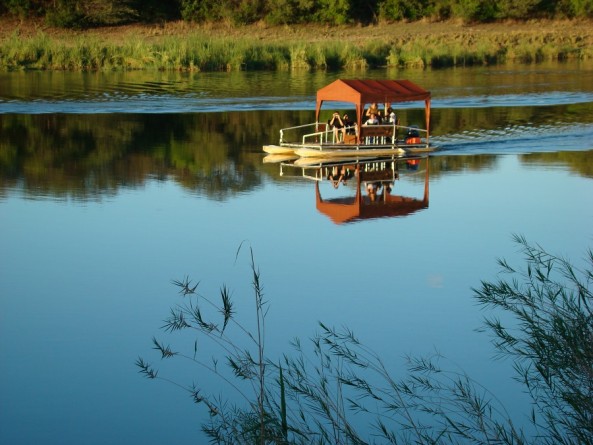
Cruising down the river on the Kavango Open Africa Route. Photo: Mark Paxton
The Okavango River is the fourth-longest river system in southern Africa, running southeast for 1,600km (1,000 miles). It begins in Angola, where it is known as the Cubango River while further south it forms part of the border between Angola and Namibia, and then flows into Botswana, draining into the Moremi Game Reserve. Before it enters Botswana, the river drops four meters, across the full 1.2km-width of the river giving rise to a series of rapids known as Popa Falls. Popa Falls is visible when the river is low during the dry season and is a popular tourist attraction surrounded by a number of community camps and safari lodges to suit a range of budgets.
Most travellers choose to enter the route travelling from Windhoek to Rundu, the tropical and very rural capital of the Kavango region set on the banks of the Okavango River. The town of Rundu has grown substantially over the past few years and is an ideal stopover to stock up on anything from fuel to food supplies or spare parts. From Rundu the closest major nearby towns are Katima Mulilo, 450km to the east and Grootfontein, 250km to the southwest.
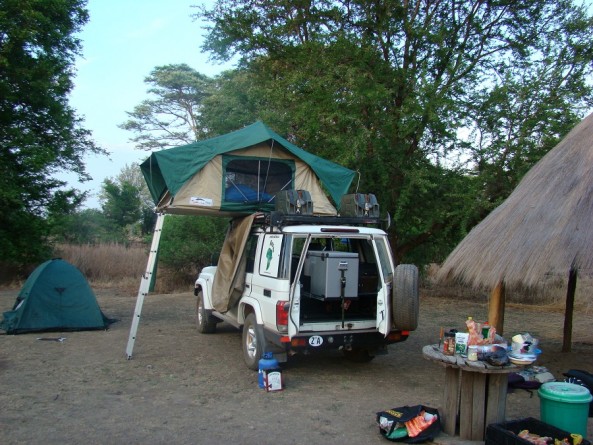
Setting up camp for the night in a community campsite along the banks of the Okavango River. Photo: Charl Pauw
The region boasts a fascinating history, evident in its diversity of language and cultural groups which were under military control as recently as 1990. These different groups are still in the process of adapting their long-standing traditional, socio-cultural management systems to the more modern Namibian Regional Government systems and visitors are able to experience a range of cultures while travelling along the route.
One of the things that stands out most when travelling though Africa is the amazing variety of people. Travellers interested in learning more about the culture and heritage of the area should pay a visit to the Shamatapa Cultural Village, west of Rundu, which offers a fantastic cultural experience where the Hambukushu people share their traditional customs and way of life. You may even be able to try your hand at traditional basket weaving or wood carving!
If you choose to hang around and check out the town of Rundu, be sure to visit the renowned open-air markets – they’re the perfect place to stock up on souvenirs and bric-a-brac. If you’re shopping for crafts, be sure to visit the Khemo Open Market, which usually has a well-stocked and wide variety of famed Kavango woodcarvings while the thriving Rundu Market, which has been in existence for 20 years, is a great place to support local businesses touting everything from fresh fish and local fruits and veg to second-hand clothing, CDs and other souvenirs.
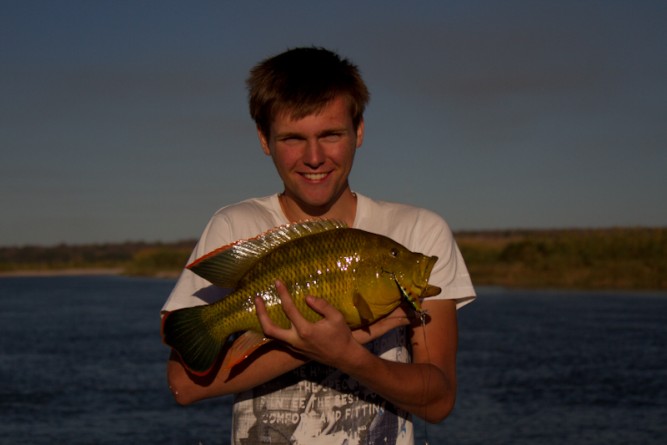
Fly-fishing is a popular activity along the Kavango Open Africa Route. Photo: Mark Paxton
The Kavango region is also a popular destination for fishermen due to the abundance of fish, particularly Tiger fish, Bream and African pike. More than 150 species of fish have been recorded so far in the Kavango River and even if you don’t hook ‘the big one’, the river itself is enchanting and competes with all the other great African rivers. Locals travel up and down the river on ‘makoros’, typical dugout canoes used in the Kavango region that are made from hollowed out tree trunks.
Birders will be in their element as the Kavango region is home to more than 400 species of bird, such as the rarely-sighted Souza’s Shrike, Grey-headed Parrot and Sharp-tailed Starling amongst many other species like African Skimmer and Carmine Bea-eater. There are plenty of well-maintained lodges along the river with hides erected specifically for bird-lovers to view these exquisite creatures around waterholes.
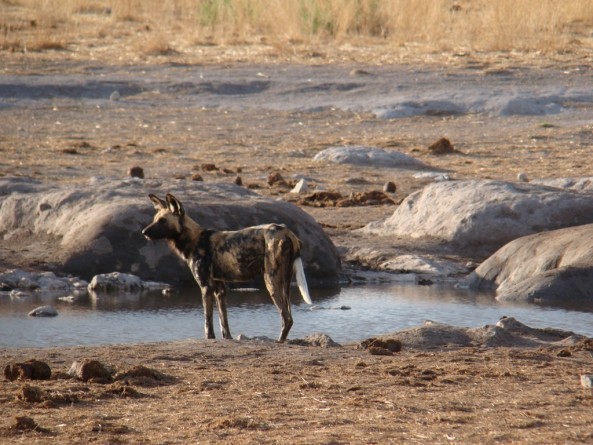
A wild dog at Khaudum National Park. Photo: Charl Pauw
Intrepid 4×4 enthusiasts can head south to the wild and unspoilt Khaudum Game Park for an experience they’ll never forget. The road to the park from from Katare in the north, is extremely difficult and only experienced 4×4 travellers should attempt this. Home to some of Namibia’s most magnificent wildlife, the park is known for its predators including lion, cheetah, hyena and the elusive wild dog. The remoteness of the park means it’s hard to reach without a 4×4 and as there are no luxury camps within the park’s confines, brave visitors will sleep in unsecured camps next to their wild African neighbours. What better way to experience the ‘real Africa’?
For the less adventurous, Mahango Game Reserve (on the Botswana border) is one of Namibia’s undiscovered gems. This pocket-sized park provides fantastic opportunities for game viewing and it is not uncommon to see over 10 different species in less than an hour. The reserve is home to a variety of wildlife including roan, sable and sitatunga.
For more information about the Kavango Open Africa Route and other routes visit www.openafrica.org and support responsible tourism.
For more options for visiting Namibia, check out these holiday packages to Namibia.

